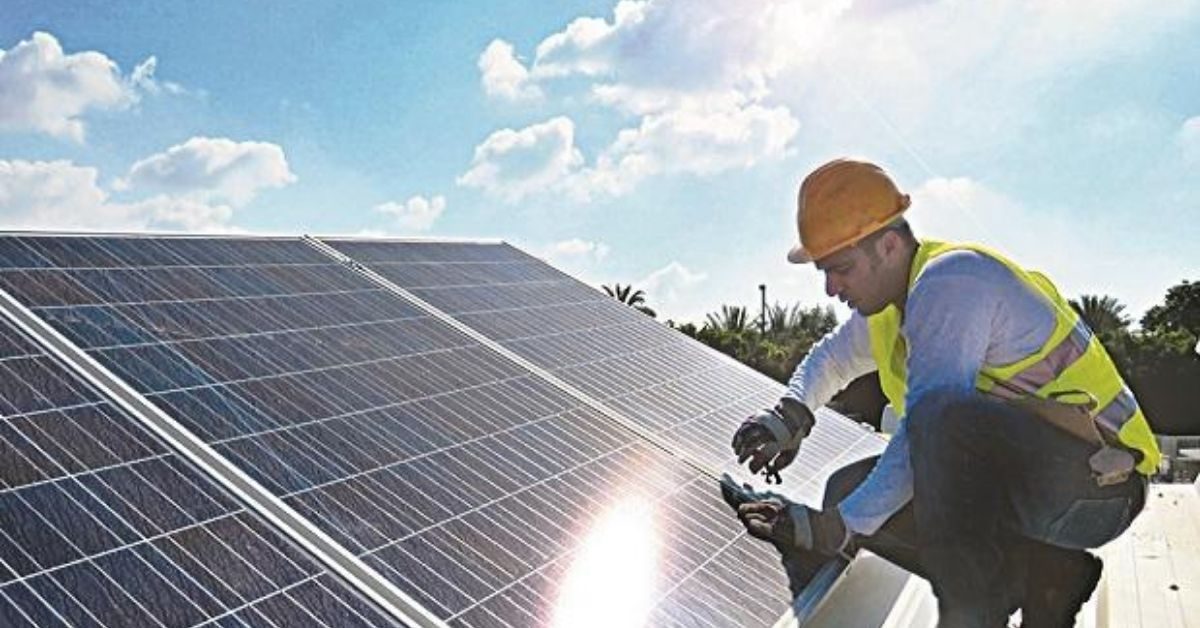Indian solar cell and module makers may see difficult times ahead with no protection from imports till April next year.
Safeguard Duty (SGD), which was imposed on solar cells and module imports for the past two years, expired last month and the Basic Customs Duty (BCD), announced by the Centre, will kick in only after 9 months.
Sector executives feel this would exacerbate the problems of domestic manufacturers of solar cells and modules. But for solar project developers, it’s a boon as they would be able to import before the BCD is enforced.
“The 9-month duty-free period, with a ‘free for all’, gives a much-deserved breathing space to Indian solar developers. We can expect a huge uptake in imports of solar modules and equipment,” said Animesh Damani, managing partner, Artha Energy Sources. He said the industry may see a reduction of close to 15 per cent in solar tariffs, with more projects and new players entering the business.
In recent tenders, project developers have started quoting competitive tariffs in anticipation of taking advantage of the duty-free period by importing low-cost material.
There is a price difference of about 10-20 per cent between Indian and Chinese solar cells and modules. India imports close to 90 per cent of its solar cells and modules and nearly 80 per cent of this is from China. According to industry data, India has 3,100 Mw of cell manufacturing capacity and 9,000 Mw of module manufacturing capacity. India’s installed capacity of solar power stands at 39.08 Gw (including ground mounted and rooftop).
The country aims to have 100 Gw of solar power capacity by next year.
In the past three years, India has seen multiple changes in duty regime on imported solar cells and modules. For a sector, which is dependent on imports, this has been a major deterrent while bidding for projects or computing a valid tariff.
In addition to the BCD, the Centre has also launched an investigation into complaints of dumping of solar imports from China, Vietnam and Taiwan. The complaints have been filed by Mundra Solar PV, solar manufacturing unit of Adani Enterprises, and Jupiter Solar Power to the Directorate General of Trade Remedies (DGTR), under the ministry of commerce.
This is the third such attempt by the Indian solar manufacturing industry in the past decade to get relief from imports, especially from China.
Senior executive of a leading manufacturing company, said, anti-dumping will help create a level-playing field for domestic module manufacturers. “This will provide the much-needed relief to the material injury caused to the domestic sector reeling under the pressure of low-cost imports from these countries and also help in protecting over 300,000 jobs,” an executive said.
During the SGD period, India witnessed over 85 per cent rise in imports. Executives said the imports would go up to 95 per cent during this duty-free period.
“At present, domestic manufacturers lack orders and are running below optimal capacity. And, customers (project developers) were eagerly waiting for expiry of SGD to place orders from foreign players at a cheaper rate. This will make sustenance for local manufacturers extremely difficult as they will be left with almost nil orders to continue production,” said the executive quoted above.
He said an interim anti-dumping duty should be levied until the anti-dumping investigation is concluded.
All India Solar Industries Association (AISIA), in a recent note, said, as the duties levied on raw materials will remain intact, this would result in huge cost differences in indigenously-produced solar modules.
“Domestic manufacturers will have to continue paying hefty duties on imported raw materials, thereby being unable to compete with internationally-produced modules. We are already witnessing delays in project installations and cancellation of orders, as most were awaiting cessation of SGD to place orders for international modules. From August, 100 per cent of solar module equipment will be imported, with no tariff restrictions or policies to aid Indian manufacturers sustain operations,” the note said.
Source : Business Standard







